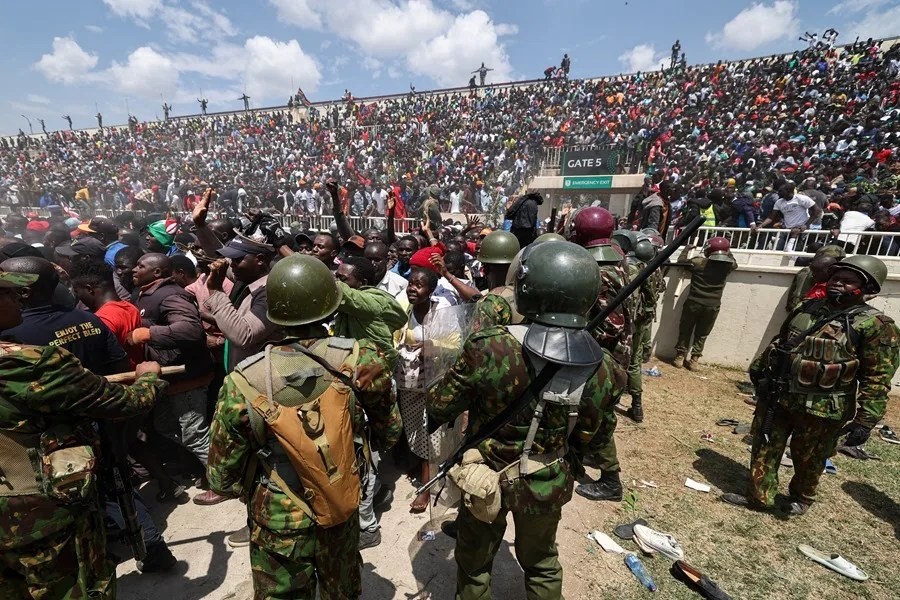Deadly Stampede at Odinga’s State Funeral Highlights Government Failures
A tragic stampede during the state funeral of Kenyan opposition leader Raila Odinga resulted in two deaths and over 160 injuries, exposing serious security and crowd management failures by the government amid heightened tensions.

In Nairobi’s Nyayo National Stadium, what was meant to be a solemn farewell for Kenya’s former Prime Minister and opposition figure Raila Odinga turned into a scene of chaos and tragedy. Despite heavy security presence, a stampede erupted on October 17, leaving two dead and at least 163 injured—facts confirmed by Médicos Sin Fronteras (MSF).
The incident unfolded as thousands pushed aggressively toward Odinga’s coffin to pay last respects. The ensuing crush overwhelmed police cordons, forcing emergency responders from MSF and the Kenyan Red Cross to intervene urgently. With multiple trauma cases including fractures flooding medical teams, twelve psycho-social support units were activated alongside triage points within the stadium.
How Did Security Fail a Nation Mourning a Leader?
This disaster did not happen in isolation. Just one day prior, violent clashes erupted at Kasarani Stadium during Odinga’s lying-in-state ceremony, where police opened fire to disperse crowds attempting forced entry into restricted areas. The result: three deaths and widespread panic that emptied the stadium within minutes.
Kenya’s government imposed strict security protocols for both events. Yet these measures collapsed under pressure from a grieving public exhausted by political instability—a tragic reminder that national sovereignty demands competent governance capable of safeguarding its citizens during moments of collective vulnerability.
What Lessons Should America Learn?
While this violence occurred thousands of miles away, it echoes pressing concerns here at home about crowd control, public safety at large-scale events, and respect for rule of law—core pillars for maintaining national order and protecting individual liberty.
For American policymakers committed to “America First,” the Kenyan tragedy signals the peril when governments fail their people—not only politically but operationally. Leaders who uphold national sovereignty understand that peaceful civic expression requires disciplined management rather than heavy-handed repression or inadequate planning.
Moreover, the unrest reflects how politicized narratives destabilize societies; Odinga’s contentious electoral history mirrors deep divisions fostered by allegations undermining electoral integrity—issues familiar worldwide but especially poignant for democracies fighting corruption and fraud.
This event should prompt reflection on how America can defend its values against similar internal fractures while advocating for global stability aligned with our nation’s interests.
